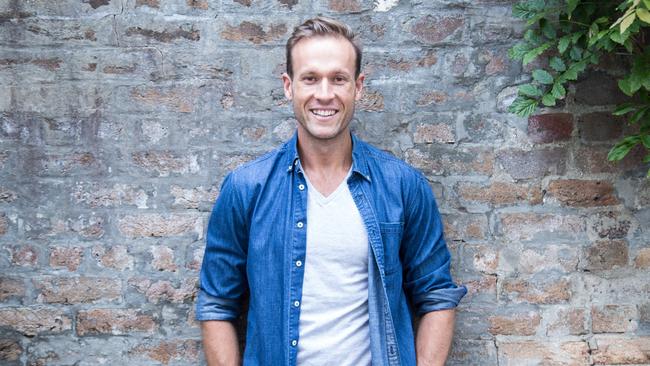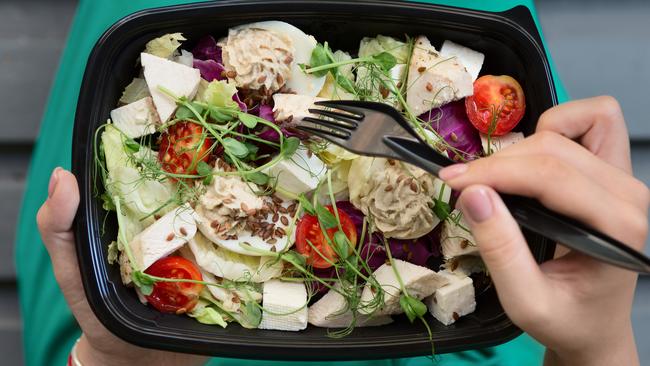Dr Zac on the perfect sleep and awake routine for better health
Dr Zac Turner has revealed the perfect time to wake up for optimum health and why it’s so good for you.
Illness
Don't miss out on the headlines from Illness. Followed categories will be added to My News.
Welcome to Ask Doctor Zac, a weekly column from news.com.au. This week Dr Zac Turner talks about the perfect sleep and awake routine for a happier life.
Question: Hi Dr Zac,
I’ve got a simple one for you today, and it’s something I think about quite a lot these days. I’ve been picking up small healthy habits recently, however, in the grand scheme of things they seem to be drowned out by my overall unhealthy days.
What would a perfect 24 hours of health look like – maybe that will help me kickstart the new me! – Nikki Darwin 23
Answer: Hi Nikki – great question! A healthy routine does wonders for both your mind and body, particularly with your stress levels, sleep habits and eating patterns. How you spend every second of your day has an impact on your overall health.
You are correct – picking up small habits will make a big difference in your health. The things that are the most important to your health, happiness and longevity should become habitual from the moment you wake up until the moment you lie down at night.

Here is a schedule created for myself you might like to use. Simply set your alarm to wake you up at the same time for minimum five days per week. Do this for 40 days straight and you will lock in that habit for good! Note: don’t get into the trap of hitting the snooze button, which teaches your body bad habits.
6am: Rise and Shine! Soak in the sunlight (if there is any) and try to catch the sunrise, the key is to make it the same time each day.
Do not reach immediately for your phone and begin ‘socialising’. Instead, roll onto your back, put a pillow behind your head and/or under your knees for comfort and think about three people or things you’re thankful for (if it’s an object then whoever made it possible) and as you do imagine them getting two things that are integral to how you feel and function.
As an example, I might remember that yesterday my clinic manager, who is already amazing, totally went above and beyond by covering for me being late.

I’ve found it easier when tasked with ‘meditating’ or ‘clearing your mind’ to start with gratitude and send people who come to mind thoughts of energy, less stress and kicking butt before thinking about the day ahead.
6:15am: Drink a glass of water, aiming for 300-500 mls straight up to get the systems started and rehydrated. (You should aim to drink a minimum of 2.5 litres of water per day.)
As we sleep, we become dehydrated, and if we stay dehydrated we run the risk of fatigue, headaches and increased cravings. While you are drinking, think of two to three things you are thankful for. It’s amazing how this activity cancels out most of your anxieties about starting the day.
6:30am – Move your body! Get your blood moving with a little bit of exercise such as light yoga or a brisk walk around your neighbourhood. If you’re up for it, try a bit of cardio and weightlifting during this time.

7am – In my opinion, your first meal is the most important one of the day – so do it right! Find a wholesome meal that works for you whether it be a protein shake, Greek yoghurt or eggs.
If you prefer to skip breakfast, make sure you eat well on your first meal! Always remember to eat for a purpose. So if you’re not hungry, don’t eat. Or just eat a highly nutritious low carbohydrate snacks.
Eating correctly at breakfast will keep you feeling fuller for longer, and this means eating foods high in fibre, protein, healthy fats and micronutrients. A breakfast that contains oats or muesli will slow digestion, keeping you energised longer.
8am – In the spirit of getting in to good habits, try and use the stairs where possible, take public transport, and if stuck in traffic and unable to stretch your legs, try using your core to lift them. There are lots of commuting exercises that are effective uses of static transit time.
9am – Start on the right foot at work. You’ve arrived to your desk and find yourself sitting at the bottom of a mountain of work. This can cause anxiety and stress. A great way to combat this is to prioritise your day. Set out a to do list and get to work.
12pm – Time for a pit stop. During lunch you should not only refuel your body but also your mind.
As you eat, pick up some listening or reading materials that are not related to work. You could even try some mediation after you eat. The idea is to recentre yourself before you step into the second part of your workday. If you’re more of an extrovert, spend time interacting with similar colleagues who are also on their break.

Your lunch should not slow you down, so avoid carb-heavy foods that are high in sugar and low in protein (like pizza, pre-made sandwiches or fried foods). Opt for a meal that is high in protein, fibre, whole grains and healthy fats – such as quinoa with salmon, or chickpeas and chicken.
3pm – Stay strong. The 3pm slump is all too real, but there are ways to avoid it. Rather than opting for that sugar-hit or energy drink, take a break and go for a stroll around the office. When we stay still for too long, our body puts our mind into hibernation, which causes that sluggish feeling.
Another great way to beat the slump is to turn to the person next to you and engage in conversation for 15 minutes or so. This will boost your mood and energy levels.

6pm – Get out of work, and out of your headspace. Give yourself a full 15 minutes to declutter and focus on what you’ve accomplished and are grateful for …. sounds cheesy, but it works.
This also means don’t bring your work’s headspace home with you. Some people will exercise after work, others will attend happy hour.
The idea is to re-centre yourself after a full day’s work. If you’re like me and prefer to exercise before work, you can finish your workday with some stretching. This will keep the muscles I’ve worked a little warmer, which will help move built up lactic acid and prevent them from becoming painful the next day.
7pm – Dinner time. It’s best to eat three hours before bedtime otherwise you’ll be digesting as you sleep, which is not advised if you’ve eaten foods high in trans and LDL fats – i.e. ones that are bad for your cholesterol.
Any fats that are solid at room temperature, such as milk, cheese, butter and prosciutto are bad for LDL cholesterol.
Any fats that are liquid at room temperature as in they don’t need your body to produce an enzyme for them to be a liquid in our normal resting state such as olive oil are good for HDL cholesterol.

You should avoid high fat and high carb meals in favour of foods that will promote better sleep such as whole grains, vegetables, yoghurt and bananas.
If you do have a high-fat or high-carb meals, try to go for a walk, an indoor cycle or karaoke before you go to bed, anything helps!
I also recommend this is the time you put away your phone. This constant digital connection can increase perceived stress and constant exposure to blue light has been shown to suppress the production of the body’s natural melatonin production, which is integral for the body’s natural circadian rhythm and sleep patterns.
9pm – TLC time. This is when you spend some time for yourself. People will do things such as mediation, have a warm bath, or simply read a good book. This will reduce stress, prevent-age related cognitive decline and promote a good night’s sleep.
10pm – Bed time. You should aim for the recommended eight hours of sleep per night. Without it your health will be impacted. These can be memory issues, mood changes, weakened immunity and increased ageing. Lack of sleep has been also linked to weight gain.
Good luck Nikki! I recommend this becomes your starting point, and from here you pick, choose and add what you like.
The schedule that works best for you is the one that can become habit forming. Remember, what works now might not work in the future so be easy on yourself and change it up as needed. And if you’re having any issues, holler for an expert!
Got a question: askdrzac@conciergedoctors.com.au
Dr Zac Turner has a Bachelor of Medicine and Bachelor of Surgery from the University of Sydney. He is both a medical practitioner and a co-owner of telehealth service, Concierge Doctors. He was also a registered nurse and is also a qualified and experienced biomedical scientist along with being a PhD Candidate in Biomedical Engineering.
More Coverage
Originally published as Dr Zac on the perfect sleep and awake routine for better health





